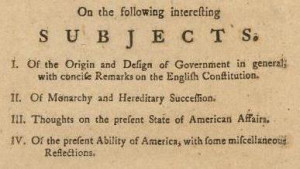

The commons is supposed to be a check on the powers of the other two-especially the king, who tends to be isolated from the nuts and bolts of important issues-but the commons itself is made of men who may be no more honest or wise than those they guard. These are the king and the “peerage” (or House of Lords), who retain powers over the democratic element, the “commons” or Parliament. How does England’s government compare? It was an improvement over previous tyrannies, but it has grown overly complex, and of its three main elements, two are oppressive. To ensure that the representatives continue to have the best interests of their constituents at heart, the people hold frequent elections. These rules are enforced by little more than “public disesteem.”Īs the group’s membership grows, so do its size and problems, and it delegates governance to representatives. Generally, this desire to cooperate is all that’s needed, but sometimes frictions and disagreements arise, so the group creates a set of “Regulations” that help resolve conflicts.

A single person can’t accomplish nearly as much as can several people working together. Society grows from people’s desire to produce good things together, while government arises from the need to restrain the bad: “Society in every state is a blessing, but government even in its best state is but a necessary evil” (3). The author “is unconnected with any Party,” and he is under no compunction “but the influence of reason and principle” (2).Ĭhapter 1: “Of the Origin and Design of Government in General, with Concise Remarks on the English Constitution” Since the first two editions of this pamphlet, no one has stepped forward to refute it, so the arguments it contains will remain unchanged in this third edition of February 1776. The battle over this issue may determine the future of freedom, which makes the struggle an important one for people the world over.


The Kings of England have ruled the American colonies since the beginning, but just because colonists are used to this situation doesn’t justify its oppressive nature, and it doesn’t prove that such rule must continue into the future. It contains a short Introduction by the author, four Chapters that make the case for freedom from English rule, and an Appendix. An e-book version of the third edition, printed in February 1776, is the basis for this study guide.


 0 kommentar(er)
0 kommentar(er)
